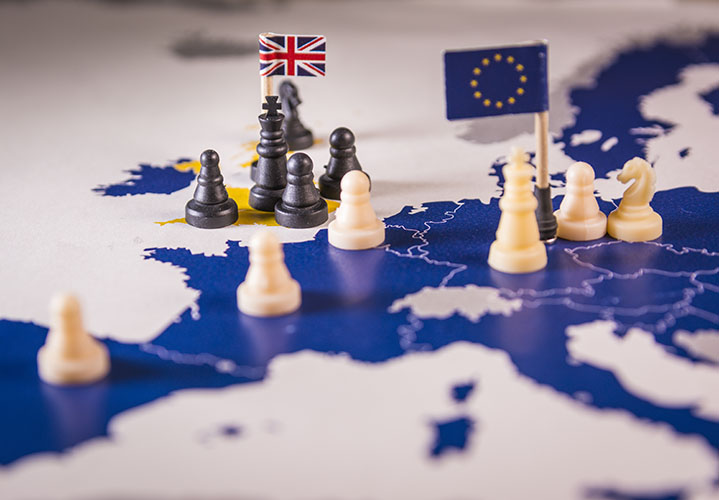The EU-UK Trade and Cooperation Agreement (the “Agreement”) has been approved by the EU and is implemented into UK law through the European Union (Future Relationship) Act 2020.
The Agreement comes into effect just in time for the end of the transition period at 23:00 GMT on 31 December 2020 and ensures that the UK leaves EU law "with a deal".
Where does it leave businesses trading across UK and EU borders? These are the key elements of the Agreement as we see them at this stage:
- The Agreement implements a zero quota and zero tariff regime, which will likely be welcome to the majority of businesses trading goods across the UK/EU border.
- It covers goods but does not, to a material extent, allow for the "free flow" of financial and professional services. Given services make up the majority of the UK economy by value there are many significant areas of the economy effectively left "without a deal".
- There is a partial mutual recognition/regulatory cooperation regime covering certain sectors including automotive, chemicals and pharmaceuticals.
- On level playing field, the Agreement contains what might be described as the core elements of EU level playing field provisions, including the elements of the current EU competition, public procurement and state aid regimes, but allows some latitude to the UK on how to regulate these areas in detail.
- In relation to personal data, the Agreement effectively results in an extension to current arrangements for six months pending an anticipated adequacy decision.
- There are sector specific agreements on areas such as fisheries, energy and climate, and transport, including aviation.
- There are mobility arrangements allowing movement of people across the EU and UK on a short-term basis.
- The Northern Ireland Protocol and other areas under the withdrawal agreement (e.g. the settlement scheme) are likely to remain in place.
- There is future cooperation envisaged on security and certain EU programmes.
In relation to what this means for businesses:
- Time spent on "no deal" preparation (other than financial modelling for tariff arrangements) is unlikely to be wasted. While there are some elements of the Agreement that will make cross-border trade simpler, including in relation to non-tariff barriers - the UK will be a "third country", and so the basic elements of any "no deal" preparation are likely to remain relevant.
- Businesses will now have to comply with separate UK and EU regimes with certain common elements. For regulated businesses or products (such as financial services) that means separate accreditations, approvals or permissions may be required in the UK on the one hand and the EU on the other.
- Free movement as we knew it will end. European nationals already in the UK will need to apply under the EU Settlement Scheme by 30 June 2021 to remain here long term. Those arriving for the first time from 1 January 2021 will need to qualify under the UK immigration rules and businesses will need to plan ahead to allow for the additional bureaucracy and cost.
- Much of the detail remains unresolved and will only become clear over the coming weeks or months. For example as it stands the UK has no functioning regime covering government subsidies. There are many other areas that need resolving. The detail around the implementation of the deal, which is not clear yet, will be key.
In the course of the parliamentary debate on the Future Relationship Bill, Boris Johnson used the slogan "keep Brexit done". That may not make much literal sense, but many will share a desire to move on from the last few years. There are undoubtedly two ways of viewing this. Either as the furthest point of separation between the UK and the EU and the start of a new co-operation, or as the start of a process which will see the UK and the EU moving further apart. We may no longer refer to it as Brexit, and much of the urgency and heat around the debate may diminish, but further developments in relation to this issue are inevitable. Certainly the Agreement envisages many areas of future discussion and cooperation, including on services.
However, we now know at least in template form what the shape of the future relationship will be and businesses will need to ensure that they are aware of and comply with the legal obligations, and make the most of any opportunities, that arise.
As a firm we will be monitoring developments closely and providing updates on specific areas of relevance over the coming weeks and months.

 Gustaf Duhs
Gustaf Duhs